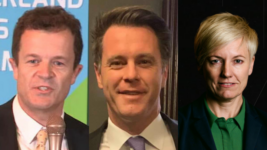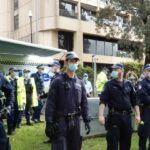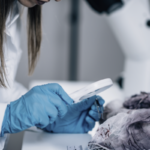The New South Wales Drug Diversion Scheme is an Abject Failure

The drug diversion scheme that NSW premier Chris Minns quietly implemented in February, has been found not to be adequately working in terms of diverting people from the criminal justice system and towards a more health-based approach.
Known as the Early Drug Diversion Initiative (EDDI), the scheme provides that a person found in possession of an illicit substance in a quantity deemed for personal use, can be issued with up to two on-the-spot fines with a third instance requiring the person to be charged with the criminal offence of drug possession and sent before a court.
Before the scheme came into effect a person could only be issued with one on-the-spot fine before having to be sent before a magistrate.
Not only does the EDDI have a harm reduction impact in permitting individuals to avoid criminal charging, which is recognised as causing some of the greatest harms to those falling foul of the law over drug use, but it also provides a choice to attend a drug counselling session and avoid the fine.
However, as NSW Greens MLC Cate Faehrmann has just revealed, data obtained by her office via questions on notice show that 92.5 percent of civilians that NSW police officers have found in possession of a small quantity of a drug have not been dealt with via the new diversion scheme.
One of the major flaws involved in the EDDI – yet hardly the only one – is that it’s supposed to improve the constituency’s health and save people from being unduly punished over a health issue, yet the decision as to whether to apply the diversion is up to an individual police officer’s discretion.
And obviously, a drug possession charge under an officer’s belt at the end of the day, looks much better to the duty officer at the station, than the officer waxing lyrical about how many individuals they’ve saved from having felt the full extent of the law during the day.
Doing what police do best
“When announcing this initiative in October last year, the government said that it sought to ease the burden on police and courts, allowing resources to be reprioritised to focus on the suppliers and manufacturers of illegal drugs in NSW,” Faehrmann said in a 23 June statement.
Indeed, the data Faehrmann obtained tells a distinctly different tale to the one Minns was spinning last year, as over 29 February until 25 May, the EDDI resulted in 275 individuals being given the fine or counselling option, while 3,404 were arrested and charged instead.
And from 7.5 percent of individuals who were diverted from the system via the EDDI, a mere 25 out of the 275 people opted to take the health intervention, which consists of a counselling session with a health professional over the phone that can last up to one hour.
So, less than 1 percent of those diverted took the option of a drug counselling call.
Another factor that likely impinges upon the low application of the EDDI is that over 2018 to 2022, the NSW Police Force was running a quota system, which provided local area commands with targets relating to how many searches and move-on orders officers should be applying over a given period.
The quota scheme was eventually abolished, in large part due to public outcry. But the recently operating incentivisation scheme does reveal the attitude within the force is to apply enforcement measures when possible, and it’s not let offenders off the hook because it’s a healthier choice.
Other key figures Faehrmann, the NSW Greens harm reduction spokesperson, highlighted included that only 60 of a total of 1,307 people found in possession of a personal amount of the drug ice were given the option of diversion, while officers sent the rest to face court.
“Clearly this has failed, with police officers choosing to send anyone they catch using or possessing small quantities of ice to court, more than 95 percent of the time instead of to health services,” the Greens upper house member underscored.
Minns’ drug diversion of choice
The reasons Faehrmann, Uniting NSW.ACT and others from the Fair Treatment campaign are so ticked off with Minns and his failing scheme, is because when he campaigned for the 2023 election, the NSW Labor leader spoke boldly about drug law reform and holding a NSW drug summit.
However, when the Murdoch press put the policy of drug decriminalisation that the ACT government was about to roll out in its jurisdiction to Minns last August, he recoiled, said he had “no mandate” for such a policy and then delayed the drug summit to somewhere later down the track.
Drug decriminalisation involves removing the criminal sanctions for personal drug possession and use. Police can no longer arrest and charge these people, but instead they can impose a fine, a civil penalty, or a counselling session.
So, it’s sort of like the EDDI with no police discretion to criminally charge the civilian.
Minns’ drug reform election promises sounded quite appealing at the time, as the NSW Coalition had spent the last five years delaying real drug reforms, just like their successor is doing now. And it all commenced in 2018, as young people began dying in drug-related circumstances at festivals.
Then NSW premier Gladys Berejiklian refused repeated calls for pill testing, attempted to shut down the festival industry and then called for the holding of the Special Commission of Inquiry into the Drug Ice, which released its report in 2020, with a chief recommendation being decriminalising.
So, having to respond to the ice inquiry report became a headache for the Coalition, as they’re usually more conservative than Labor. So, instead of responding as required to the report, the Liberals dragged their feet on the matter for years.
Yet, that was until new NSW premier Dominic Perrottet came to the table with a response in September 2022, with a generous half a billion-dollar investment in treatment programs, which was so welcomed his refusal to make any substantial drug law reforms had to be overlooked.
A bipartisan failure
But we can’t completely condemn premier Minns for the failure of the EDDI, as he actually appropriated the scheme from Mark Speakman: the current leader of the NSW Liberal Nationals opposition.
Following the 2020 release of the ice inquiry report, then NSW attorney general Speakman spruiked the proposal of a drug diversion program that would operate like the EDDI.
But instead of providing individuals with two fines or counselling sessions prior to arrest, the now leader of the Liberals was calling for “three strikes”.
This proposal, however, didn’t fly with his Coalition counterparts. So, not to be one completely deterred, when Perrottet finally decided that he ought to deal with the ice inquiry report in 2022, Speakman again rose the EDDI, but with an option of two fines, yet cabinet shunned it again.
So, when Murdoch journalists parachuted in to deter Minns from harbouring any aspirations of copying the progressive policies of the ACT, the premier decided a month later to simply repropose Speakman’s 2022 idea, and he relied on the now opposition leader’s solution to fix his dilemma.
Yet, while those medical experts, lawyers, church members, parents of children with drug issues and people who use drugs themselves, who were all relying on drug law reform-speaking Minns to deliver, are now cursing him for the failure he’s implemented, perhaps they should go a little easier.
As the current premier has spent his first year in office attempting to mimic his Liberal predecessors – a spectacle that’s also playing out federally – and the added plus for Minns in applying this strategy, is he can just shrug off the blame, because it’s actually Speakman’s fault.







